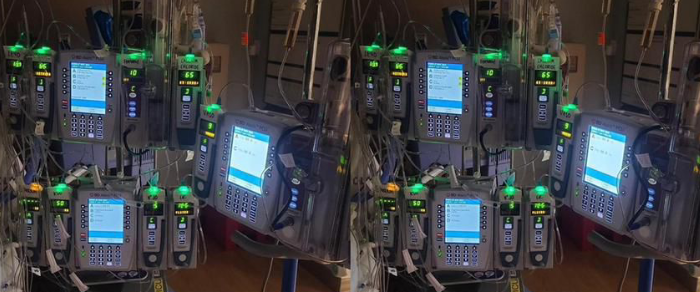
“Go and Call Shekau!” — Nigerian Man Shares Hilarious Encounter After Mistakenly Sending Money to the Wrong Account

In a country where mobile transfers have become the new normal, stories of mistaken transactions often end in heartbreak, frustration, or endless back-and-forths with unyielding recipients. But one Nigerian man’s recent experience has taken social media by storm, both for its humor and its unexpected twist of poetic justice.
A Twitter user identified as @Yemihazan, who also goes by the nickname YHO, shared an unbelievable yet deeply relatable story of what happened when he mistakenly transferred money to the wrong Opay account. What started as panic and regret quickly turned into an episode that had thousands of Nigerians laughing, shaking their heads, and secretly praying never to be in his shoes.
According to YHO, it all began one ordinary morning when he was making a routine mobile transfer. But in a moment of error, perhaps from distraction or fatigue, he punched in the wrong account number and sent money to a total stranger. Realizing his mistake almost instantly, he quickly sprang into action, hoping to retrieve his funds before it was too late.
He called the recipient’s number and explained the situation, expecting at least a hint of empathy or an apology. But what he got in return was something else entirely. “He was an Hausa man,” YHO wrote, “and he said if I like I should go and call Tilumbu, he won’t refund.”
That reply alone set the tone for what would become a rollercoaster of disbelief and laughter. Nigerians on X (formerly Twitter) could immediately picture the kind of confidence and audacity it takes to tell someone who mistakenly credited you to go and call “Tilumbu” — a playful twist on President Bola Tinubu’s name. The defiance was complete, the response unbothered, and the situation, at least for that moment, looked hopeless.
But YHO wasn’t about to give up that easily. He did what many would do next — he contacted his bank, explained the situation, and followed all the steps they outlined to resolve the issue. Typically, such cases drag on for weeks, and most victims never get their money back. Yet in his case, the universe — or rather, the banking system — was on his side.
“Few days later,” he wrote, “they took the money from the isist (he meant ‘said’) account and refunded me.”
It was a moment of quiet triumph. The system worked. Justice had been served. He could finally exhale.
But that wasn’t the end of the story. The twist came shortly afterward, and it was the kind of twist you could only find in Nigeria — where reality and comedy are often two sides of the same coin.
“The werey still had the audacity to call me and beg that I send the money back to him,” YHO recounted. According to the man who initially refused to refund the money, he was in desperate need — the funds were meant to complete his house rent, and without it, his landlord was threatening to throw him out.
At that point, any normal person might have felt a twinge of pity. But after everything — the arrogance, the disrespect, the boldness to tell him to “call Tilumbu” — YHO wasn’t having it. His reply was as savage as it was satisfying. “I told him to go and call Shekau,” he said, referencing the late Boko Haram leader in an exaggerated show of mockery and dismissal.
That line — “go and call Shekau” — instantly became the punchline of the story, spreading like wildfire across social media. Nigerians could hardly contain their amusement, with many praising his pettiness and composure in handling the situation. Others said it served as a perfect example of karma doing its job — a classic case of someone reaping exactly what they sowed.
Social media users flooded the comments with their own experiences of mistaken transfers and uncooperative recipients. Some said they had lost hope after their banks failed to intervene, while others admitted they had once been on the receiving end of accidental credits and returned the money immediately because, in their words, “Nigerian banking wahala is not something you want to play with.”
One user commented, “This is why I always double-check account numbers before pressing send. Nigerians are not joking with money, especially when times are hard.” Another wrote, “That man must have thought he had won the lottery. Imagine waking up to free money only for your bank to reverse it later. Pain.”
Beyond the laughter and memes, YHO’s story highlights a very real issue — the moral and legal gray area surrounding mistaken bank transfers in Nigeria. Many people still don’t understand that refusing to refund money mistakenly sent to your account is considered a criminal offense under Nigerian law. According to Section 419 of the Criminal Code, it can amount to fraud or theft, depending on the circumstances.
But while the law is clear, enforcement often isn’t. Banks typically require both parties to cooperate, and when the recipient refuses, it can become a tedious process involving police reports and official documentation. That’s why YHO’s success in getting his money back without having to chase the man down personally struck a chord — it gave hope that the system can, in fact, work when procedures are followed.
Still, Nigerians couldn’t help but find the humor in the situation. The defiant “call Tilumbu” and the final “go and call Shekau” became the stuff of social media legend, turning what could have been a frustrating financial loss into a national laugh. Memes quickly followed, with some users jokingly imagining a scenario where the man actually tried calling “Tilumbu” or “Shekau” to intervene on his behalf.
As the tweet continued to circulate, YHO himself seemed amused by how much attention his story received. It was one of those rare tales that combined everyday Nigerian reality — mobile banking, quick thinking, street-level wit — with the kind of comedic timing only Nigerians can deliver.
It also served as a quiet reminder to everyone using digital banking platforms: always double-check before hitting send. In a cashless economy where every kobo counts, a small mistake can easily become a big headache. But if you ever find yourself in a situation like YHO’s, his story shows that sometimes persistence — and a good sense of humor — can make all the difference.
In the end, Nigerians summed it up best with one comment that perfectly captured the mood of the story: “Moral lesson — don’t test someone who has both sense and savage. Today it’s Tilumbu, tomorrow it’s Shekau.”
For YHO, the whole experience has turned from a potential loss into internet fame. His story is now one more hilarious chapter in the ever-entertaining saga of Nigerians versus mobile banking mishaps — a mix of chaos, audacity, and poetic justice that could only happen in Nigeria.


